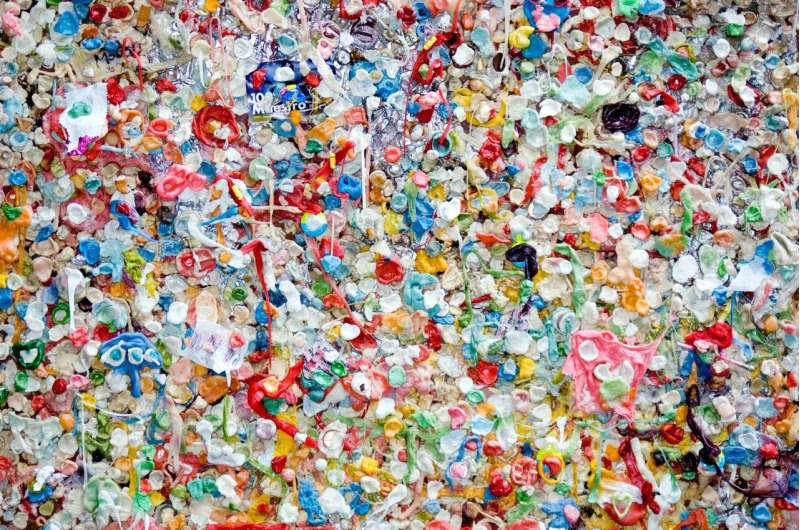Plastic: What we eat and breathe

Take a deep breath, drink a glass of water, eat a snack. If you do any of these things, it's likely that you are also inhaling and ingesting tiny particles of plastic, as much as a credit card's weight each week. Plastic pollution is everywhere, including in our bodies.
From the moment plastic production took off in the 1950s, manufacturers needed to convince people that they could easily dispose of a product that essentially lasts forever. "The future of plastics is in the trash can!" declared one industry marketer.
Plastic was presented as having an inherently short life: use it once, throw it out, industry makes more. Today, 40% of plastic goes into packaging, the largest component of plastic waste. And the United States leads the world in plastic trash per capita.
Feel guilty? That's exactly what the plastic industry wants. Just as tobacco companies hid the health effects of smoking and oil companies obscured the facts of global warming, the plastic industry has spent 60 years covering up its waste problem by making it your fault.
In the 1950s, packaging manufacturers and companies that sell the end products, like Coca-Cola, got together to start an anti-littering campaign called Keep America Beautiful—remember the "crying Indian" ads? The responsibility for waste was placed on individuals with the tagline: "People start pollution; people can stop it."
The industry also peddled the myth that recycling is the solution, even though it has long known that this is not economically viable. Today, we pay for recycling infrastructure and dutifully sort our waste into bins, even though only 10% of all plastic is recycled.
In March, Sen. Jeff Merkley, D-Ore., and Rep. Alan Lowenthal, D-Calif., introduced the Break Free from Plastic Pollution Act. It would require plastic manufacturers to deal with the tide of plastic waste and pollution that disproportionately harms low-income people of color.
Industry trade organizations held a press conference to denounce the bill even before it was introduced. The head of the American Chemistry Council, Chris Jahn, urged lawmakers to consider the measure "dead on arrival."
The bill dropped from public notice almost immediately. A similar bill went by the wayside last year.
Silence serves the industry. It keeps people from even imagining that things could be different. It keeps us from considering something that should be basic common sense: Companies should be responsible for the pollution they generate.
Two years ago, to prove this point, my family and I drove a large plastic car part I had found in my front yard in Oregon back to the Honda Odyssey plant where it originated in Lincoln, Alabama.
On an early, already sweltering summer morning, the 9-year-old I co-parent with my partner walked through the doors of the factory, which bills itself as "zero waste." She had the car part draped around her shoulders and her stuffed leopard in her arms.
To the smiling Honda representative in the trademark white suit, she made a good case. We could never recycle this car part at home. The part, which came from one of the first Honda Odysseys, had historic value. The sprawling Honda building had plenty of room.
The Honda representative, still smiling, grew more and more firm in her refusals. Finally, she handed the car part back to my daughter, saying: "They won't let me take anything like that here. That's yours."
It was a potent moment of symbolism for all of the plastic waste we are handing future generations. Is this really the legacy we want?
Individuals don't start pollution. The industry does. We must demand that they stop it.
©2021 Tribune Content Agency, LLC.





















